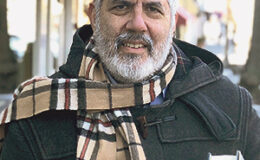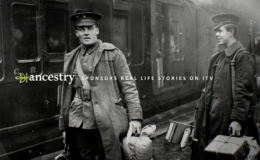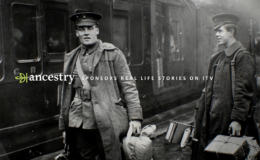Katie Sullivan Borrelli, Binghamton Press & Sun-Bulletin Published 9:46 a.m. ET Feb. 1, 2019 | Updated 1:58 p.m. ET Feb. 4, 2019
There are many sources out there for genealogy resource. Here’s where to start. Katie Sullivan / Staff Video
CONNECTCOMMENTEMAILMORE
Assuming other family members have jumped on board, DNA testing can be the quickest way to find branches of your family tree.
There are risks involved, and you’ll find disclaimers on sites like 23andMe.com warning customers DNA results can uncover surprising information which might have profound implications on you and your family.
While most companies advertise strict privacy policies, the idea of releasing genetic data to a third party is daunting for some people and yes, under certain circumstances, your personal information can be released to law enforcement.
If you want to know more about your family but choose to steer clear of DNA testing, here are a few places to start.
Broome County
Broome County Local History and Genealogy Center on Court Street in Binghamton has public city directories from 1856-1980s along with telephone books, yearbooks and obituaries dating back to the early 1960s.
There are cemetery entries, newspaper accounts and data from the center’s 250,000 index card system along with birth, death, and marriage records for the New York State. Digitally, the center has access to Ancestry.com records and sees about 15,000 users annually.
The Center is open 9 a.m. to 5 p.m. Monday, Wednesday, Thursday-Friday; 12-8 p.m. Tuesday.
Chemung County
Chemung County Historical Society’s center for genealogy and historical research, on East Water Street in Elmira, is open 1-5 p.m. Monday-Friday. It’s free for members, or $5 a day for non-members.
Steele Memorial Library on East Church Street in Elmira is open 9 a.m. to 9 p.m. Monday-Thursday and 9 a.m. to 5 p.m. Friday-Saturday. For genealogy questions, call 607-733-9175.
Tioga County
Research requests can be submitted to the Tioga County Historical Society at tiogahistory.org, via email museum@tiogahistory.com or at 607-687-2460.
Research requests can also be conducted on site at the museum on Front Street in Owego, open 10 a.m. to 4 p.m. Wednesday-Saturday.
Tompkins County
John Marcham Research Library in the History Center in Tompkins County has extensive photo collections and documents including local genealogy files, obituary and cemetery listings, legal notices, scrapbooks and census records.
It is currently closed ahead of a move to the new Tompkins Center for History and Culture on North Tioga Street, but will reopen in the spring 2019. Check for updates at thehistorycenter.net.
Online
Ancestry.com: $99 for DNA saliva test; $99 for a six-month subscription to U.S. records; $149 for six-month access to world records. You can test the family tree builder with a 14-day free trial. To search through public records, access Ancestry.com through an institutional account at a public library or purchase a private subscription.
FamilySearch.org: Free to search the site’s collection of family trees, genealogy records and resources, operated by The Church of Jesus Christ of Latter-day Saints — previously known as the Genealogical Society of Utah — and considered the world’s largest genealogy organization.
23andMe.com: $99 for DNA saliva test with ancestry results; $199 for ancestry and health history results. The kit is delivered to your door, then saliva is collected in a provided tube and sent back in a prepaid package. Results typically arrive in 6-8 weeks, via email.
Genealogy.com: This free research site provides articles and forums to help you in your search.
National Genealogical Society:This membership organization ($70 per year) offers educational materials, online tutorials and an annual conference to educate people on how to do ancestral research.
The Statue of Liberty/Ellis Island Foundation: This National Monument’s Web pages give free tips on researching your genealogy and grant access to passenger manifests.
Ask Questions
In a presentation at Appleridge Senior Living Community in Horseheads, veteran genealogy researcher Maxine Piecuch encouraged those interested in genealogy to follow these tips:
► Immediately contact family members and ask them to share their stories and memories of their relatives
► Look around for paper documents — diaries, newspaper clippings, marriage announcements, letters and stories — and make sure they are copied and kept in a safe place
► Write your own story down to share with future generations
Follow Katie Sullivan Borrelli on Twitter @ByKatieSullivan. Support our journalism and become a digital subscriber today. Click here for our special offers.
CONNECTCOMMENTEMAILMORE
Read or Share this story: https://www.pressconnects.com/story/news/connections/2019/02/01/dna-testing-alternative-start-ny-genealogy-research/2736511002/















